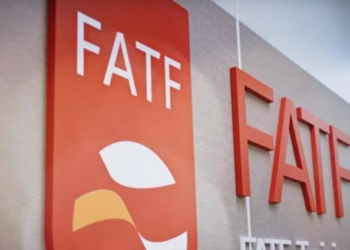The Central Bank of Nigeria (CBN) has assured that the nation’s economy will grow by 2% in 2021. The apex bank is optimistic that its various intervention will make Nigeria emerge out of recession in the first quarter of 2021.
This was disclosed by the Governor, CBN, Godwin Emefiele while delivering his keynote address at the 55th Annual Bankers Dinner of the Chartered Institute of Bankers of Nigeria (CIBN) in Lagos on Friday.
READ: Total credit to the economy rose to N19.54trillion – CBN Governor
What he is saying
He said, “We expect that growth in 2021 would attain 2.0 percent. It is important to insulate the economy from shocks that may undermine the attainment of the projected 2.0 percent economic growth.
“However, downside risks remain, as restoration of full economic activities, particularly in service-related sectors, remains uncertain until a COVID vaccine is produced and made available to millions of people across the world.
READ: Dark Clouds loom for investors as stocks fall 8% in first half of 2020
“Second, with the significant rise in cases in advanced markets and the imposition of lockdowns in parts of Europe, concerns remain on the impact this could have on growth in advanced economies, commodity prices and the financial markets.”
He emphasized on the need to find ways to insulate the economy from the impact of these shocks through diversification efforts, while also working to ensure that the nation adheres to safety protocols in order to prevent a surge in COVID-19 related cases, as this could further cripple economic activities.
READ: CBN discloses how much has been disbursed from N50 billion COVID-19 intervention fund
Stop overdramatizing analysis
Emefiele appealed to economic analysts to stay clear from analysis that can create panic and thus hamper the economic recovery process. “When you overdramatized you create panic in the system and that slows down the process of recovery.
“Our actions in 2021 would be guided by the considerations that emerged from the Monetary Policy Committee meeting of November 23 & 24, 2020, which sought to address the major headwinds exerting downward pressure on output growth and upward pressure on domestic prices,” he added.
Mr. Emefiele has often accused “armchair” economists of making exaggerated comments when expressing their views on the economy.
Explore Data on the Nairametrics Research Website
55th Annual Bankers Dinner https://t.co/WROvaYq8Cg
— Central Bank of Nigeria (@cenbank) November 27, 2020
READ: Finance Minister gives reason FG approached China for $17 billion loan
What you need to know
On November 23, 2020, Nairametrics reported that the Minister for Finance, Budget and National Planning, Mrs. Zainab Ahmed, said the country will exit recession by the first quarter of 2021 as the government is working towards reversing the declining economic trend in the country.
- The Finance Minister said the COVID-19-induced recession followed the pattern across the world, where many countries had entered an economic recession.
READ: Nigerian economy going into recession, might contract by -8.9% – Finance Minister



















Are you not equally an Economist? Think before talking.